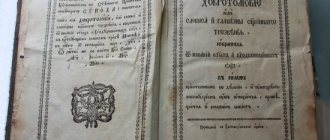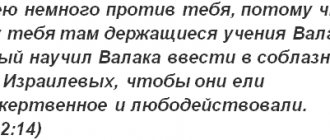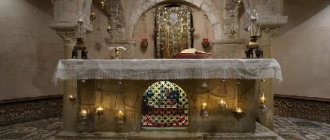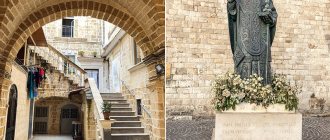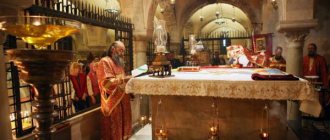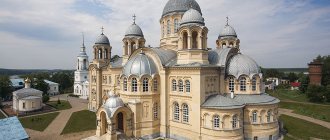Russian chronicles say that during the battle with the Tatar-Mongols on the Kulikovo Field, the boyar and squire of the Grand Duke of Moscow Dimitri Ioannovich Donskoy, Mikhail Brenko, dressed in his clothes and heroically died under his banner.
By doing this, he saved the savior of Rus' from death, which allowed the Russian army to win on the battlefield. Many centuries later, Dmitry Aleksandrovich Bryanchaninov repeated the feat of his ancestor on the spiritual battlefield, becoming a great Orthodox saint.
Saint Ignatius Brianchaninov was born into a pious aristocratic family
Saint Ignatius Brianchaninov (in the world Dmitry Alexandrovich Brianchaninov) is the Bishop of the Caucasus and the Black Sea, a famous Russian ascetic and spiritual writer of the 19th century, theologian and preacher.
Born on February 5 (17), 1807 in the village of Pokrovskoye, Gryazovets district, Vologda province. Nowadays, the village is part of the Yurovsky municipal formation of the Gryazovets district of the Vologda region.
Saint Ignatius Brianchaninov. Portrait. Irina Gaiduk. 2008 Saint Ignatius is not only a church leader, theologian and preacher, but also an outstanding Christian writer
The biography of Saint Ignatius is notable for the fact that his family belongs to the old noble family of the Brianchaninovs. Its founder is considered to be the boyar Brenko Mikhail, squire of the Grand Duke of Moscow Dimitri Ioannovich Donskoy.
Chronicles say that Mikhail Brenok is the same warrior who saved the Grand Duke of Moscow during the battle with the Tatar-Mongols on the Kulikovo Field. The boyar dressed in the prince's clothes and fought under his banner, thereby diverting the attention of the Tatars to himself; he died heroically, giving the prince the opportunity to defeat the enemy.
The Bryanchaninov family descended from the boyar Prince Dimitry Donskoy, Mikhail Brenk.
Dimitri's father, Alexander Semenovich, was considered a pious and deeply religious man. At one time he was part of the retinue of the Russian emperor, then he became poor and by the time his son was born he had become a poor landowner.
The mother of the future saint, Sofia Afanasyevna, had a good disposition and a good education. She got married early and spent all her energy taking care of her family.
Monument to boyar Mikhail Brenk on the Kulikovo field. The Bryanchaninov family originates from this warrior, who at the cost of his life saved the life of the Great Moscow Prince Dimitri Donskoy during the battle with the Tatar-Mongols.
Naturally, in such a family, Dimitri received a good education and upbringing in the traditions of piety. It is worth noting that with his talents he stood out among his other brothers and sisters.
Thus, he showed abilities in learning languages, drawing, singing, and playing the violin. His parents predicted a brilliant career for him. He himself prayed a lot, often visited church, and from his youth he decided to connect his life with monastic feats.
When Dimitri admitted this to his father, he considered this desire a childish whim and did not take it seriously.
Relics of Saint Ignatius Brianchaninov
May 13 (NS)
Troparion of St. Ignatius Brianchaninov, Bishop of the Caucasus and Black Sea
voice 8
A champion of Orthodoxy, a great worker and teacher of repentance and prayer, a God-inspired adornment to the bishops, glory and praise to the monastics: with your writings you have made us all wise. Spiritual treasure, Ignatius the Wise God, pray to the Word of Christ God, Whom you bore in your heart, to grant us repentance before the end.
Kontakion of Saint Ignatius Brianchaninov, Bishop of the Caucasus and Black Sea
voice 8
Even though you followed the path of earthly life, Saint Ignatius, you constantly saw the laws of eternal existence, teaching your disciples many words, which we should also follow, praying holy.
Prayer to Saint Ignatius Brianchaninov
O great and wonderful servant of Christ, Holy Hierarch Father Ignatius! Graciously accept our prayers, offered to you with love and gratitude! Hear us, orphans and helpless, who fall to you with faith and love and your warm intercession for us before the Throne of the Lord of Glory asking. We know that the prayer of a righteous man can do much, propitiating the Lord. From the years of infancy you have passionately loved the Lord, and having desired to serve Him alone, you have counted all the red of this world as nothing. You have denied yourself and taken up your cross; you have followed Christ. You chose the narrow and regrettable path of monastic life for yourself, and on this path you acquired great virtues. With your writings you filled the hearts of people with the deepest reverence and humility before the Almighty Creator, and with your wise words you taught sinners who had fallen in the consciousness of their insignificance and their sinfulness, in repentance and humility to resort to God, encouraging them with trust in His mercy. You rejected none of those who came to you, but you were a loving father and a good shepherd to all. And now do not leave us, who fervently pray to you and ask for your help and intercession. Ask our man-loving Lord for mental and physical health, confirm our faith, strengthen our strength, exhausted in the temptations and sorrows of this age, warm our cold hearts with the fire of prayer, help us, purified by repentance, to receive the Christian death of this life and into the palace of the Savior adorned come together with all the elect and there together with you worship the Father and the Son and the Holy Spirit forever and ever. Amen.
Bishop Ignatius (in the world - Dmitry Aleksandrovich Brianchaninov; February 5 (17), 1807 - April 30 (May 11), 1867) - bishop of the Orthodox Russian Church. Theologian, scientist and preacher.
Saint Ignatius (in the world Dmitry Alexandrovich Brianchaninov) was born on February 6, 1807 in his father’s family estate, the village of Pokrovskoye, Vologda province. The mother gave birth to Dmitry after prolonged infertility, through fervent prayer and travel to the surrounding holy places. The boy spent his childhood in the solitude of rural life; From an early age he was unconsciously drawn to the monastic life. With age, his religious mood became more and more noticeable: it manifested itself in a special disposition to prayer and reading spiritual books. Dmitry studied excellently and remained the first student in his class until he left school. His abilities were very versatile - not only in science, but also in drawing and music. Family connections brought him to the house of the President of the Academy of Arts A. N. Olenin; here, at literary evenings, he became a favorite reader and soon met A. Pushkin, K. Batyushkov, N. Gnedich, I. Krylov. But in the noise and bustle of metropolitan life, Dmitry did not betray his spiritual aspirations. In search of “eternal property for eternal man,” he gradually came to a disappointing conclusion: the significance of science is limited to the earthly needs of man and the limits of his life. Just as zealously as he studied science, Dmitry takes up the study of ancient and modern philosophy, trying to calm his spiritual languor, but this time he does not find a solution to the most important question about the Truth and the meaning of life. The study of Holy Scripture was the next step, and it convinced him that, left to the arbitrary interpretation of an individual, Scripture cannot be a sufficient criterion of true faith and deceives with false teachings. And then Dmitry turned to the study of the Orthodox faith according to the writings of the holy fathers, whose holiness, as well as the wonderful and majestic agreement, became for him a guarantee of their fidelity.
Dmitry Brianchaninov attends services at the Alexander Nevsky Lavra and there he finds true mentors who understand his spiritual needs. The final revolution in life was made by meeting Elder Leonid (later Hieromonk Leo of Optina). Dmitry Brianchaninov leaves the splendor and wealth of aristocratic life and, causing the deepest bewilderment of the “society” and the discontent of his parents, resigns in 1827. Having served as a novice in several monasteries, he took monastic vows with the name Ignatius in the secluded Glushitsky Dionysian Monastery.
In January 1832, Hieromonk Ignatius was appointed builder of the Pelshemsky Lopotov Monastery in the Vologda province, and in 1833 he was elevated to the rank of abbot of this monastery. Soon Emperor Nicholas I summons Ignatius to St. Petersburg; By the highest recommendation and by order of the Holy Synod, he was ordained archimandrite and appointed rector of the Sergius Hermitage.
Having lived in the Sergius Hermitage for 24 years, Archimandrite Ignatius brought it to a flourishing state. On October 27, 1857, he was consecrated Bishop of the Caucasus and Black Sea. The following year, Vladyka arrived in Stavropol. where he had new great labors ahead of him, but the serious illness that befell him, smallpox, prevented them. The Right Reverend decided to ask for retirement and in 1861 settled in the Nikolo-Babaevsky Monastery. Here, free from official duties, he devoted all his time until the end of his life (April 30, 1867) to working on spiritual works.
Bishop Ignatius was canonized by the Local Council of the Russian Orthodox Church (Trinity-Sergius Lavra, June 6-9, 1988). Commemoration: April 30 according to the Julian calendar. Before canonization, on May 26, 1988, his relics were solemnly transferred to the Holy Vvedensky Tolga Monastery in Yaroslavl.
At the St. Petersburg Military Engineering School, Dimitry Brianchaninov was considered the first student
In 1822, Dimitri turned 15 years old, and his father took him to St. Petersburg. Here the future saint entered the Military Engineering School as a cadet. The fact is that his father is a hereditary military man, a hero of the War of 1812.
That is why he saw his son only as a military man. Dimitri did not contradict him and passed the entrance exams so successfully that he was ahead of all his peers.
Saint Ignatius Brianchaninov with his life. Icon Fragment. Alexey Viktorovich Kozlov. While studying at the Military Engineer School, Saint Ignatius showed good results and was noticed by Grand Duke Nikolai Pavlovich, the future Emperor Nicholas I
While studying at the school, the future saint showed good results, his successes even became known to the Grand Duke, the future Emperor Nikolai Pavlovich, Inspector General of the Engineering Troops.
In December 1824, Dmitry was promoted to the rank of ensign engineer. A brilliant officer from an aristocratic family, over the years of service in the capital, became acquainted with many aristocratic houses. In addition, his good manners and good education allowed him to meet such celebrities as A.S. Pushkin, I.A. Krylov, V.A. Zhukovsky.
The leadership of the military school established supervision over the cadet Brianchaninov because of his desire to become a monk.
Even during his studies, Dimitri began to show an inclination towards spiritual life. For example, he created and headed a circle of “holiness and honor” at the school. In addition, he also met the monks of the Valaam metochion and the Alexander Nevsky Lavra.
He was especially influenced by his meeting with Hieromonk Leonid, the future elder of Optina. The father did not like this communication and the fact that his son expressed a desire to become a monk. He turned to the school management and Dmitry was placed under surveillance.
Daugavpils fortress Dinaburg. Festival "Dinaburg - 1812". 2016 Dimitri Brianchaninov, after graduating from the Military Engineering School of St. Petersburg, despite his illness, insisted that he be sent to serve in the Dinaburg fortress on the Western Dvina
The future saint graduated from the Military Engineering School. A brilliant career opened up before him, but he wanted to become a monk and, to the amazement of many, submitted his resignation. Naturally, he was rejected.
In the spring of the same year, officer Brianchaninov fell ill with tuberculosis. Despite the fact that Emperor Nicholas I offered him service in any guards regiment stationed in the south of Russia, Dimitri insisted that he be sent to the engineering unit of the Dinaburg fortress on the banks of the Western Dvina.
Years of study
Despite the fact that the engineering profession did not attract the young man, he completed a course of study, demonstrating his talents and becoming the best student.
People around the king started talking about his talent and achievements.
- Professors and teachers admired the rare mental abilities of the cadet, and the morality of Brianchaninov, the head of the “Holiness and Honor” society, aroused special respect among students and teaching staff.
- Emperor Nicholas the First enjoyed spending time talking with the young talent, attracting the empress and children to them.
- While still a cadet, Brianchaninov, a nobleman by birth, was accepted into the richest houses thanks to family connections and upbringing. His poetic gift and ability to recite brought the future saint into the circle of A. Olenin, along with A. Pushkin. I. Krylov, K. Batyushkov and other outstanding people of that time.
- The ascetic works of the future Archimandrite of Stavropol and the Caucasus are filled with lyrical flavor, acquired by reading the works of such geniuses of poetry as Karamzin and Zhukovsky.
Books by Ignatius Brianchaninov - In 1824, Dimitri became an ensign engineer, but at the same time he did not find answers to the questions that worried him about the creation of the world either in physics or in philosophy.
- The writings of the Valaam monks and the teachings of Paisius of Athos struck the young man with the depth and revelation of God's message.
Interesting!
The meeting of Elder Leonid, conversations with him while visiting the Alexander Nevsky Lavra change the life plans of young Brianchaninov, he decides to go to the monastery, but his father intervenes again. The best student of the school is under supervision for 2 years. At the age of 19, Dmitry, having graduated from military school, immediately began to ask for resignation, which was not accepted.
By God's will or by coincidence, a young engineer falls ill with tuberculosis. The doctors' verdict puts an end to his dreams of monasticism, Dimitri goes to serve in the Dinaburg fortress, standing on the Dvina River, refusing to leave for the south of Russia, where the climate is warm and favorable. Having served the allotted time as an engineer, Dimitri goes to the monastery.
Dimitry Brianchaninov prepared for a long time for monastic tonsure
In the Dinabur fortress, Dimitri Alexandrovich’s illness worsened, and due to his serious condition, he retired on November 6, 1827. After this, at the age of 20, he entered the Alexander-Svitrisky Monastery as a novice.
Father Leonid became his spiritual mentor. Here he studied spiritual wisdom, performed various obediences: he worked in a bakery, fishing, and worked as a driver.
Archimandrite Ignatius (Bryachaninov) and schemamonk Mikhail (Chikhachev). Saint Ignatius knew Schemamonk Michael from his studies at the military school. They learned spiritual truths together and became monks together.
A year later, the elder was transferred to the Ploshchanskaya Hermitage. Dimitri and other students of Father Leonid went with him. Later, the saint reflected his spiritual state at this time in the miniatures “Tree in winter before the windows of the cell” and “Garden during winter.”
20 years
at this age Saint Ignatius Brianchaninov became a monk
In April 1829, Father Leonid was transferred again, this time to Optina Pustyn. Setting off after him, Dimitri Brianchanienov and his army friend Mikhail Chikhachev decided to visit the Svensky Monastery and from here go to the Beloberezh Desert.
Here they met the doer of mental prayer, Hieromonk Athanasius, a disciple of St. Paisius Velichkovsky. During the pilgrimage, his health deteriorated, and he and a friend went on vacation to his parents’ house near Pokrovsk.
Sosnovetsky Glushitsky Monastery. Photo. Early 20th century. Glushitsky Monastery is the first monastery into which Saint Ignatius Brianchaninov entered
The parents tried in vain to dissuade their son from his desire to become a monk. In 1830, Bishop Stefan of Vologda and Ustyuzhensk helped Demetrius enter the Semigorodnaya Uspenskaya Let, and later - the Glushitsky Sosnovetsky Monastery. Here the future saint wrote his famous “Lamentation of a Monk” without even being a monk.
From monk to archimandrite
In 1827, a young man arrived at the Alexander-Svirsky Monastery, who, in parallel with the acquisition of spiritual knowledge, performed monastic duties:
- worked as a baker;
- was fishing;
- drove people.
Life icon of St. Ignatius
For Demetrius, who thirsted for the knowledge of His glory, God appointed Elder Leo as a spiritual guardian and spiritual mentor, who in 1828 went to the Ploshchansk Hermitage. The young monk followed his mentor and then moved to the Optina hermitage. After 2 years, Dimitri served in the Seven-Gorod Hermitage, and in 1831 he moved to the Glushitsky Sosnovets monastery.
Monk Ignatius
God sees Demetrius’s faithfulness; at the age of 24, the young man became a monk under the name Ignatius. The miracles of moving up the ladder of a servant of God are simply amazing.
- A month later, the young monk is ordained a deacon, and 15 days later a priest with the right to serve in the bishop’s house.
- Two years later, in 1833, Abbot Bryanchaninov headed the monastery of Grigoriev-Pelshemsky Lopotov.
Seeing the will of God in the rapid growth of their son, the parents forgive him for his disobedience and bestow their blessing. Due to health reasons, Abbot Brianchaninov was transferred to the abbot of the monastery in Uglesh, but was immediately recalled, because he was recommended by Tsar Nicholas the First himself to be the abbot of the Trinity-Sergius Hermitage in St. Petersburg.
Rector of the Trinity-Sergius Hermitage
By the will of the Creator, the faithful ascetic of God, Archimandrite Ignatius, headed the hermitage from 1834 to 1857, which during this period acquired many new inhabitants and the respect of the local population, which brought significant donations for the maintenance of the churches.
Since 1838, all of Russia knew the dean of the St. Petersburg diocese, the rector of the St. Sergius Monastery. Metropolitan Philaret of Moscow listened to the advice of Archimandrite Ignatius, admiring his way of serving and living.
The writer N. Leskov wrote the story “Unmercenary Engineers,” dedicated to the biography of the saint.
Important! Thanks to his majestic appearance, nobility, spirituality and prudence, the Saint acquired a flock consisting of many people who were spiritually fed through the sermons of the righteous man.
In the simplicity and beauty of Holy Scripture, Ignatius Brianchaninov directed people on the path of moral perfection, showing the truth and greatness of the Orthodox Church.
Holy Trinity Lavra of Sergius - place of ministry of St. Ignatius
Possessing a great gift for leadership, the newly appointed abbot began the restoration of the desert that had fallen into desolation by restoring the temple and monastic cells. The 15 inhabitants of the Trinity-Sergius Monastery had long forgotten about the rigor of monastic life, and the 27-year-old archimandrite had to start all over from the very beginning.
Soon, not only the landscaped territory of the monastery, but also exemplary divine services, filled with ancient church melodies, began to attract parishioners from the most distant areas.
Interesting! Under the leadership of the church composer Father Peter Turchaninov, the monastery choir, for which Mikhail Glinka wrote his best works, became another attraction of the desert.
The archimandrite was open to all parishioners. During his service at the Trinity-Sergius Monastery, he had more than eight hundred people under his tutelage. Possessing many-sided experience, a special gift to see the world through the prism of spirituality, God endowed him with the gift of prophecy and healing of physical and mental illnesses.
As a bishop, Father Ignatius Brianchaninov served in the Caucasian and Black Sea diocese
In October 1857, Father Ignatius was consecrated as bishop, and in January 1858 he arrived in Stavropol. The bishop headed the Caucasian and Black Sea diocese. At this time, the process of conquest of the Caucasus by Russia was underway.
Therefore, the diocese was in disarray, ranging from insufficient funding to the hostility of the schismatic Cossacks who had long lived in these parts.
Bishop of the Caucasus and Black Sea Ignatius Brianchaninov. While serving in the Caucasian and Black Sea diocese, Saint Ignatius improved her life and took measures against the Old Believers
His brother P. A. Brianchaninov, who held the position of Stavropol vice-governor, became an active assistant. During the four years of managing the diocese, the saint managed to improve its life.
It should be noted that Saint Ignatius met here with hostility from his opponents. As a result, in 1860, in letters to Muravyov-Karsky, Bishop Ignatius complained of scrofula and the loss of a dozen teeth.
1861
this year Bishop Ignatius Bryanchaninov retired
In 1861 he submitted a request for retirement. In August 1861 he was dismissed with a pension. The Bishop of the Caucasus and Black Sea was settled in retirement in the Nikolobabaevsky monastery of the Kostroma diocese.
Here the saint continued his monastic work, namely, carefully monasticism as a science of life leading to Christian perfection. The ascetic experiences of the saint are described in his books published under the same title.
Nikolo-Babaevsky Monastery view from the river. Volga of the Kostroma Diocese. In the monastery of Saint Ignatius Brianchaninov spent his last years
Here he wrote such books as: “An Offering to Modern Monasticism”, “On the Various States of Human Nature in Relation to Good and Evil”, “On the Sensual and Spiritual Vision of Spirits”, “On Salvation and Christian Perfection”, “The Teaching of the Orthodox Church about God Mothers."
Archimandrite Ignatius was rewarded with the Order of St. Anne, 1st degree, for his services to the Fatherland.
Father Ignatius Brianchaninov's father owns two dozen books of spiritual and moral content
After his death, Saint Ignatius Brianchaninov left many works of religious and moral orientation. These are theological works, works of the holy fathers with analysis of the saint, parables, etc. In addition, Ignatius’s works also touch on the epistolary genre, because he corresponded a lot with his spiritual children.
In total, Saint Ignatius Brianchaninov wrote more than 20 books.
Books and works by Ignatius Brianchaninov are sold in the Blagovest online store
Among the most famous works of the saint are the following:
- Ascetic Experiences, vol. I;
- Ascetic Experiences, vol. II;
- Ascetic preaching;
- Letters to the laity;
- On the need for a Council on the current state of the Russian Orthodox Church;
- The future of Russia is in the hands of Divine Providence;
- About signs and wonders;
- The concept of heresy and schism;
- A Word about Man;
- Christian pastor and Christian artist.
Philokalia.
19th century edition. Saint Ignatius Brianchaninov created his works on the basis of the works of the holy fathers included in the “Philokalia” (a collection of spiritual writings of the 4th-15th centuries). The works of Saint Ignatius, published during his lifetime, attract attention with their deep knowledge of the Holy Scriptures and the works of the Holy Fathers of the Orthodox Church, creatively revised and meaningful in relation to the spiritual needs of our time.
Even during their lifetime, they were divided into quotes, for example, the following:
“Humility does not see oneself as humble. On the contrary, it sees a lot of pride in itself. It takes care to find all its branches; looking for them, he sees that there is a lot more to look for.”
All the works of Ignatius Brianchaninov were written with extraordinary literary skill and, despite the fact that only photographs remain of some of their manuscripts, they still represent a valuable tool for everyone who wants to walk the narrow and thorny path of experienced knowledge of God.
By leaving a comment, you accept the user agreement
